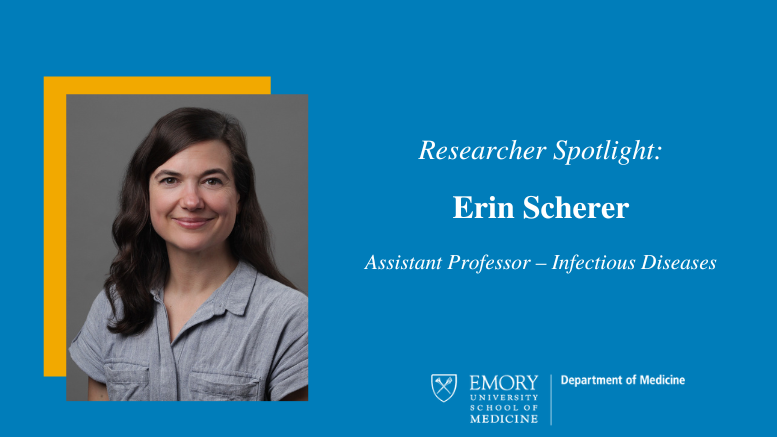What is your professional background?
I received my Bachelor of Science degree summa cum laude in Chemistry from the University of Arkansas. My passion for HIV research led me to pursue graduate studies at the Scripps Research Institute in La Jolla, CA, where I was fortunate to be selected into a joint PhD/DPhil program with the University of Oxford in the UK (ultimately spending three-and-a-half years at Scripps and two years at Oxford). After focusing largely on broadly neutralizing HIV antibody research for my graduate work, I transitioned to cellular immunology research in HIV and HPV vaccinology for my postdoctoral studies in the Department of Immunology at the University of Washington and in the Human Biology Division at the Fred Hutchinson Cancer Research Center in Seattle. From there, I transitioned to lead an antibody discovery team in biotech for a little less than two years at Seattle Genetics, the then largest oncology therapeutics biotech in the Seattle area. However, after realizing my passion for infectious diseases, I returned to the field as a fellow at the Centers of Disease Control and Prevention for two years before joining Emory as faculty in March 2020.
In what division do you work, and who is your mentor?
I am an assistant professor in the Division of Infectious Diseases, and my Emory mentors are Nadine Rouphael, MD, MSc; Colleen Kelley, MD, MPH; and Cynthia Whitney, MD, MPH.
Briefly describe your research. Why is it important?
As an assistant professor and director of the Hope Clinic Vaccine and Treatment Evaluation Unit (VTEU) Research Laboratory, I wear two hats. On the one hand, my independent research focuses on understanding the immune mechanisms that underlie durable and protective B cell/antibody responses, so that we may more reliably design infectious disease vaccines that provide long-lasting immunity. We would like more vaccines that provide lifelong immunity in contrast to, for example, seasonal influenza and pertussis vaccines, which generate relatively short-lived immunity even if the influenza strain is well matched. On the VTEU side, my team supports objectives of clinical studies, where our goal is to evaluate the immune responses elicited by natural infection or infectious disease vaccines. This work enables sponsors and regulatory groups to understand the types and strengths of immune responses elicited by an infection/vaccine and whether these responses are considered sufficient, which in turn informs vaccine development decisions.
What do you like most about Emory?
I love being part of a division that has so much diversity at the top compared to other departments and institutes. I am also grateful that the work we do at the Hope Clinic is meaningful, improves human health, and allows me to grow as an independent scientist.
What is your favorite movie or TV show?
With all the darkness surrounding 2020, I’d have to say ‘Schitt’s Creek.’
What do you like to do in your spare time?
Honestly, the thing I want to do most nowadays with two young children at home, disruptions in childcare because of COVID-19, and both my husband and me working full-time plus, is sleep. Beyond that, I prefer to spend time with my boys, husband, and our friends in the great outdoors (hiking, backpacking, swimming, running, cycling, skiing, etc).
What is a fun fact about you?
Growing up in Arkansas, I met both the Clintons and the Huckabees because I took ballet classes and performed with Chelsea Clinton and went to the same high school as David Huckabee.


Be the first to comment on "Researcher Spotlight: Erin Scherer"